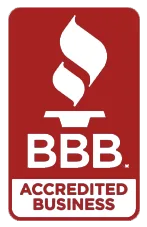How much do property managers charge?
If you own property, you probably wish it brought you fewer problems. Whether you own a single building or a considerable portfolio, tenant complaints, rainwater leaks, plumbing problems, and equipment breakdowns all have a way of popping up while you’re eating dinner or rushing out to an important meeting.
If you own property, you probably wish it brought you fewer problems. Whether you own a single building or a considerable portfolio, tenant complaints, rainwater leaks, plumbing problems, and equipment breakdowns all have a way of popping up while you’re eating dinner or rushing out to an important meeting.
Unfortunately, there’s no way real estate investments can ever be as easy to manage as stocks, bonds, coins or precious metals.
But you can reduce the number and frequency of property care headaches you encounter by working with a responsible, experienced property manager. And the property manager fees can be far less than you imagine.
Whether your property manager is an individual or family operation, or a full-blown property management corporation, the property care professionals who are good at this work can not only put more money in your pocket, they can greatly reduce the time, energy, and heartache your property ownership entails.
This income, these savings, and the opportunities you’ll have time to explore because you’re less tied up managing your property, can more than cover the raw costs of any property management charges that you’ll pay.
What Do Property Managers Do?
The basic relationship between a property owner and a property manager involves delegation.
As the owner, you delegate to the property manager the authority and responsibility to care for your real estate. This immediately frees you for other, more interesting and/or more lucrative activities.
Naturally, you can limit or expand the scope of this delegation any way you want, ranging from total responsibility to highly specific tasks. And you can change this responsibility whenever you wish. This means you can hire a property manager at first to simply collect rents, and later you can expand their responsibilities to include setting market rents, finding and signing new tenants, handling repairs and upgrades, and more.
If one property manager stops satisfying you, you can switch to a different one. You can also change from a large, professional property management corporation to an individual or small business, or vice versa, to better suit your preferences and needs.
Looking for homes for rent in San Antonio?
What Are Some Property Management Responsibilities?
The range of property management responsibilities can include any or all of the following:
- Collect rent
- Forward rent to the owner or deposit it in the owner’s account.
- Advertise vacancies
- Find and screen new tenants
- Set and adjust rent prices
- Prepare leases for new tenants
- Receive and disburse security deposits
- Oversee property usage and conditions
- Respond to emergencies
- Respond to tenant complaints
- Manage turnaround when tenants vacate
- Handle evictions as necessary
- Recognize needs for repairs and maintenance
- Arrange for repairs and maintenance
- Recognize needs for upgrade (facades, mechanicals, décor)
- Arrange for upgrades
- Negotiate prices and terms with vendors
- Supervise vendors (and, as necessary, other employees)
- Manage and pay bills
- File and pay taxes
- Maintain records
- Comply with applicable laws
- Balance accounts
As a property owner, you can decide which of these property care tasks will remain yours, and which you will delegate to your property manager.
How Much Do Property Managers Charge?
The fees that property managers charge vary widely, not only by the number of tasks you delegate, but also by the size and type of each property. Both the geographical region and the neighborhood in which the property is located are also important in establishing property-management fees.
Simply put, any property manager will try to estimate the amount of work involved in all the property care tasks you agree to delegate, and will then calculate a fee intended to cover the hours required to complete those tasks.
Click here to view homes for rent in San Antonio, TX.
What is a Typical Fee Agreement?
Property management fees range anywhere from as little as two percent of a property’s annual revenue to as much as 12%.
For example, if you’re receiving $2500 per month in rent from your property, you can expect to pay between $50 and $300 per month for comprehensive, quality property management services. That’s a broad range, because the specifics of your property situation are extremely important.
Check with other property owners and with various management companies to get a clear idea of the current property management fees in your area for properties like yours.
Depending on the situation, you may also be expected to pay some of your property manager’s expenses, which can include everything from postage to mileage, advances for materials and supplies to bank service fees.
Search listings for homes for sale in 78249.
How Much Do Property Managers Charge for Vacation Rentals?
If your real estate portfolio includes vacation rental property, then professional property management is likely to be even more important to you. This is because vacation rentals rarely attract long term, stable tenants. Instead, you’ll be depending for your income on one-off vacation rental arrangements with tenants who have no interest in being gentle with your property.
As a result, a professional property manager’s expertise in advertising widely, screening applicants carefully, maximizing rental income, monitoring property usage closely, and undertaking property maintenance and repairs quickly becomes the difference between a happy, profitable property ownership experience and a miserable one.
Vacation rental property managers can charge either a commission or a flat fee. For full service management, expect to pay about 20% of rentals in urban settings, about 25% in beach settings, and about 30% in mountain settings.
If you want to pay only for bookings, expect to be charged between 10% and 15% of your rental rate.
What Other Fees Might I Expect?
When property management fees seem lower than the averages, you can expect to be hit with additional charges.
Some property management arrangements include fees for specific services, such as cleaning, provision of bed linens and towels, credit card services, and other more imaginative fees, as well. Here are a few common property management fees:
Leasing Fees
Some property managers charge a special fee for finding new long-term tenants when units become vacant. Real estate agents charge as much as six percent of the unit’s annual rent for this service. Professional property managers will usually accept less, but three percent is probably the minimum fee you’ll be asked to pay for finding and signing a new tenant.
When you agree to this finder’s fee, expect the property manager to cover his or her own costs for advertising, open houses, signage, and related expenses.
Even so, screening the tenant and negotiating the rent will probably not be included in this particular fee.
Occupancy Fees
In some situations, property care firms prefer to charge a fee only when a unit is occupied. This is favorable to the owner because it creates an incentive for the manager to keep vacancies to a minimum.
If you sign this type of agreement, however, make sure that whenever a unit is fully occupied for years at a time, you will not wind up paying more than you would under a more conventional property management agreement.
Maintenance Fees
When something wears out or breaks, the property owner is ultimately the one to pay for parts and service to get it fixed or replaced. Some of the larger property management companies have their own maintenance crews on salary, year ‘round. If you contract with such a property care company, you can and should expect relatively quick responses both to routine maintenance requests and to emergencies.
In some cases, however, these companies will not include the cost of their maintenance crews in their property management contracts. Instead, they will want to charge you every time a crew rolls to your location. This can become quite expensive when maintenance involves nothing more than plunging a toilet or changing a light bulb.
It’s fair to argue that full-time maintenance crews should cost you less per hour than outside maintenance vendors – like individual plumbing, painting, and other contractors – that you hire and pay only when you need them.
Eviction Fees
Evictions are a fact of life for most property owners. The key is to make them as arms-length, quick, easy, and inexpensive as possible.
Most property managers will ask for an extra fee for each eviction. Initial notices to tenants might cost you anything up to \$100, while the full eviction process could involve fees and court costs that total up to \$1,000 or even more.
Late Rental Payment Fees
Tenants paying their rent after a specified cut-off date are a normal event in property ownership. Many property managers do not charge anything extra for handling this aspect of property management.
However, some property managers expect to receive a 25% to 50% share of any late fees the delinquent tenant eventually pays.
What to Negotiate with Property Managers?
Because a property management agreement can be fairly wide ranging, it’s important to nail down all the particulars before you sign. Think about and negotiate terms you can live with, such as:
What are the Property Manager’s Basic Responsibilities?
The fundamental matter to set forth is the broad range of responsibilities you are delegating to the property manager.
For example, you may be willing to handle the day-to-day work, but want a professional to find you new tenants when and as necessary.
Or you may prefer to find, screen, and select your own tenants, but want a property manager to be responsible for the grunt work of managing the property on a daily, weekly, and monthly basis.
Go over the list, above, and select what you are willing to do, and what you are willing to pay a competent, qualified property manager to do. Make sure your contract enumerates these responsibilities in detail.
The more time and effort required to handle responsibilities you delegate to the property manager, the more you should expect to pay.
What Special Work Do You Want from Your Property Manager?
As indicated, property managers naturally charge for each item of responsibility you delegate to them. If they charge a relatively low monthly fee, you can expect to be hit with itemized fees for work above and beyond the routine.
This could include:
- A charge for regular inspections of your property, on the assumption that finding a problem before it becomes an emergency is worth a little extra in fees.
- The funding of some sort of reserve account, so your property management company has cash on hand to help cover the cost of unanticipated problems that need immediate attention.
There may also be contract issues regarding pets that live on your premises. This is because pets are often the basis for slightly higher rents, and also often the source of extra troubles for the property manager.
Since rent checks returned for insufficient funds always require extra handling, your property manager may ask for an additional fee each time a tenant bounces a check.
And if your property includes vending machines, a laundry room, or other ancillary sources of income, you can expect your property care service to ask for a share of this income to cover any extra time and energy managing such a facility may require.
What Is the Best Contract Language?
The language of your property management contract is critically important. Specific terminology can make a huge difference in both your satisfaction and bottom line profits.
For example, if a property management contract calculates their management fees on the basis of something like “rental value,” “listed rent,” or “rent roll amount,” your financial obligation to a property manager could be significantly higher than if their fee is based on “collected rent” or “actual paid rent.” With the wrong language in place, you could be paying your property manager the same level of management fees on empty units as you do on occupied ones.
Even more important, when a property management company gets paid a percentage of only “collected rent” or “actual paid rent,” you’ve given them a strong incentive to keep the units occupied and to extract high rents from your tenants – both of which help maximize your monthly income from the property.
What Is Most Important in Property Management?
Aside from the details we’ve discussed so far, having a successful relationship with a good property manager boils down to being able to communicate well, operating from the same point of view, and trusting each other to fulfill their share of the property responsibilities.
When a property manager does his or her job well, you should receive far more rental income, have far lower expenses, and enjoy a greater level of occupancy than you would with less competent property management in charge.
That’s why smart property owners recognize that the raw dollar cost of a property manager is not the best yardstick to use in judging which property manager to hire, and how well they are doing their job.
Top quality property managers know how to enhance and increase the value of your property. They have the experience and know-how to find and retain desirable tenants. They are also ready to take necessary steps to keep your vacancy rate low and your income from the property high.
So, How Much Money do Property Managers Charge?
The answer depends entirely on the quality of the property manager, the number of duties they have, the size and income of the property they’re managing, the difficulty of the tenants, and your ability to negotiate. Property management can be both a lucrative career for the manager, and a worthwhile investment for the property owner.










